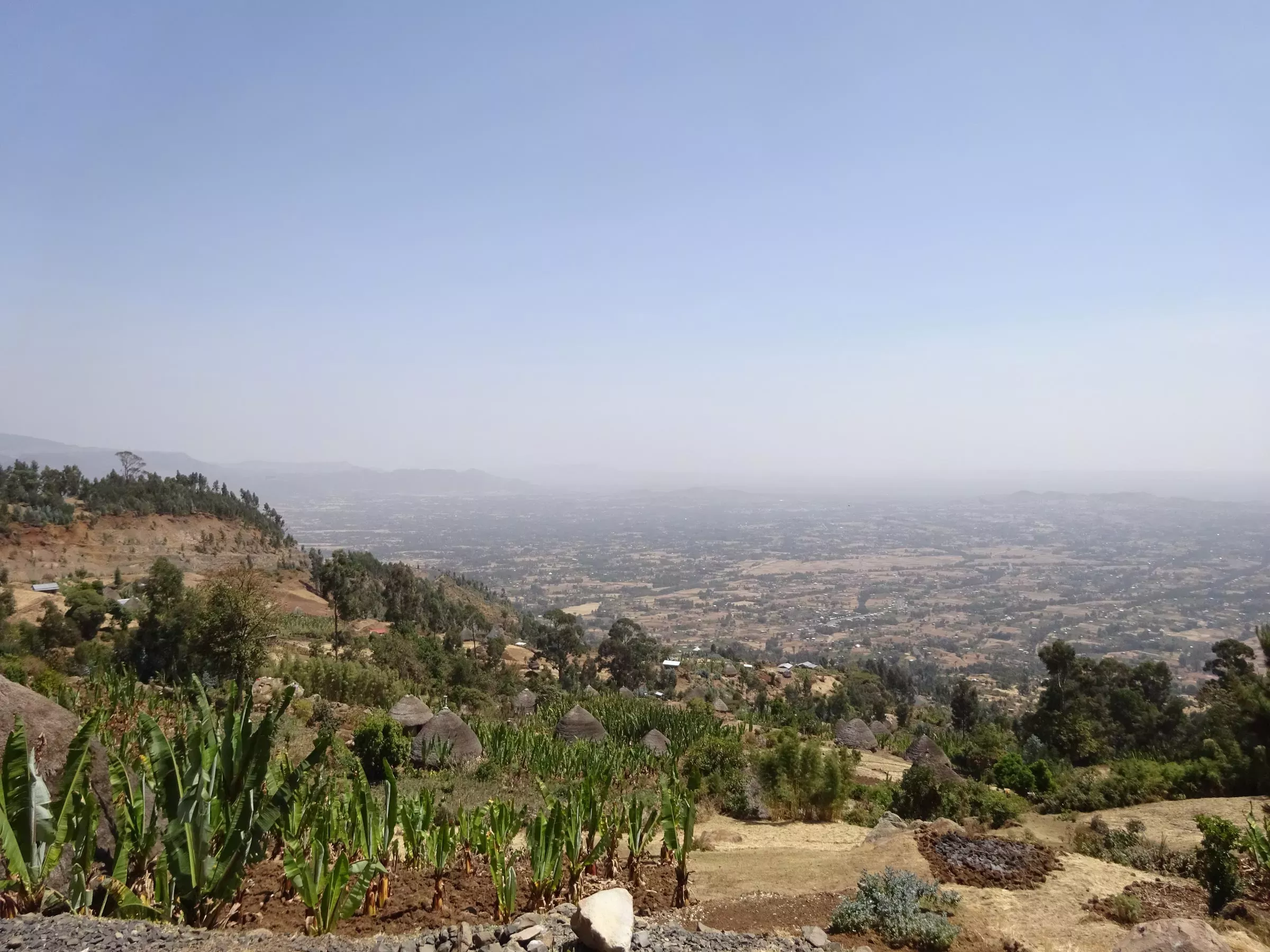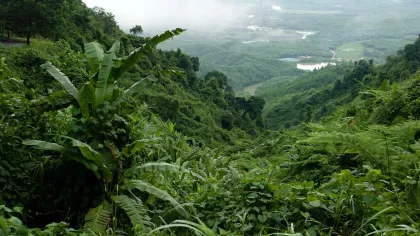22 May 2019
Why preserving biodiversity will protect the food on your plate
On International Day for Biological Diversity 2019, Richard Deverell, Director of Kew, explains why we are fighting for food security.

On the face of it, our diet has never felt more varied. The traditional British mainstay of ‘meat and two veg’ can feel like a distant memory. Most of us have access to more cuisines and flavours than ever before.
However, despite the seemingly huge variety of ingredients now present in our supermarkets and on our plates, as a species we consume just a tiny proportion of the world’s available food. Whether we live in Aberystwyth or the Amazon rainforest, the human diet is typically centred around 30 or so main crops.
It is estimated that more than 50% of our food comes from just three crops: wheat, rice and maize.
Being overly reliant on three crops may not sound like a big problem but with a growing global population and the increasing threat of climate change it may be riskier than you’d think.
.jpg.webp?itok=D3-lOjdW)
What are the threats to food?
Climate change is having an enormous impact on how we grow and harvest crops. With extreme temperatures, increasing drought and elevated levels of carbon dioxide, we are having to think more carefully about what crops we plant, and how and where we plant them. Wild Arabica coffee (Coffea arabica) is facing near-extinction, despite being highly important for coffee sustainability due to its considerable genetic diversity.
Our crops are also facing increasing threats from pests and diseases. One of the fastest spreading pests in the world, the fall armyworm (Spodoptera frugiperda), is highly damaging to grasses such as maize and rice. In May 2016, Nigeria’s Kaduna state had to declare a state of emergency when 80% of farms growing tomatoes were reported to have had their crops destroyed by the moth Tuta absoluta.
To feed an estimated 10 billion people in 2050, we’re going to require more food, leading to a significant increase in intensive farming and large areas of land converted to agricultural use. This increases food production capability but alters the balance of cultivated and wild species in these areas. The recent IPBES Global Assessment Report on Biodiversity and Ecosystem Services, which includes data and insight from scientists here at Kew, makes clear that land clearance for agriculture is the principle cause of biodiversity loss. The report’s message is clear – decreasing biodiversity and increasing extinction rates of wildlife around the globe are a direct threat to human wellbeing.
According to the Convention on Biological Diversity, more than 90% of crop varieties have already disappeared from farms around the world in the last 100 years. This loss of diversity has already impacted our diets, our health, and our livelihoods.
Kew is part of a global community of scientists, environmentalists and policymakers working to spread the word and increase understanding of the intrinsic dependency between biodiversity and the future of our food systems and human health.

Kew’s role in promoting food security and biodiversity
Conserving biological diversity is a high priority for us at Kew.
Our scientists partner with institutions around the world to identify and increase understanding of crop wild relatives. They are also conducting important research to understand the impact of changing environmental conditions on agriculture, from working with partners in Ethiopia to improve the genetic resilience of yams (Dioscorea), to understanding the extinction threat facing 60% of the world’s coffee species.
Closer to home, the dedicated horticulturists working in Kew’s Kitchen Garden are exploring how to grow heritage plants, like tomatoes, and other less common crops to see how they fare in a changing climate.
But we know there’s more to do.
Reversing the trend and increasing biodiversity on a global scale will require significant investment and an internationally coordinated response. I am hopeful the IPBES report, combined with an increasing public awareness of biodiversity, will inspire action from our world leaders and policymakers.
I believe that Kew can make a material contribution towards this urgent global challenge of biodiversity loss, and I will be working with staff, volunteers and trustees to increasingly align our organisation to serve this purpose.
Kew will contribute by continuing to research plant and fungal diversity and its impact on humanity and our ecosystems, and directly conserving diversity through our living collections and seed banking.
We are training the next generation of scientists and horticulturists, and inspiring a love of science and discovery in the children that visit our gardens and take part in our education programmes. And of course, we also have a role to play in helping people of all ages understand what biodiversity is, why it matters and why it merits protection.



